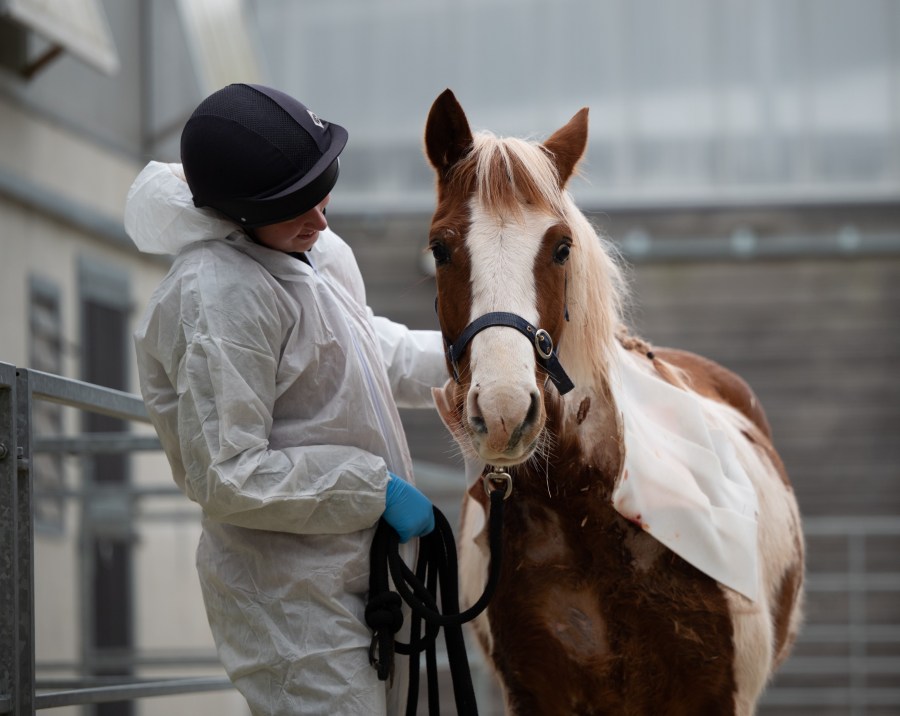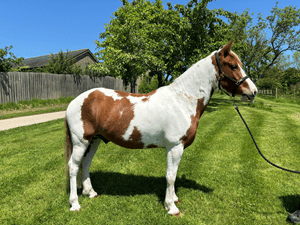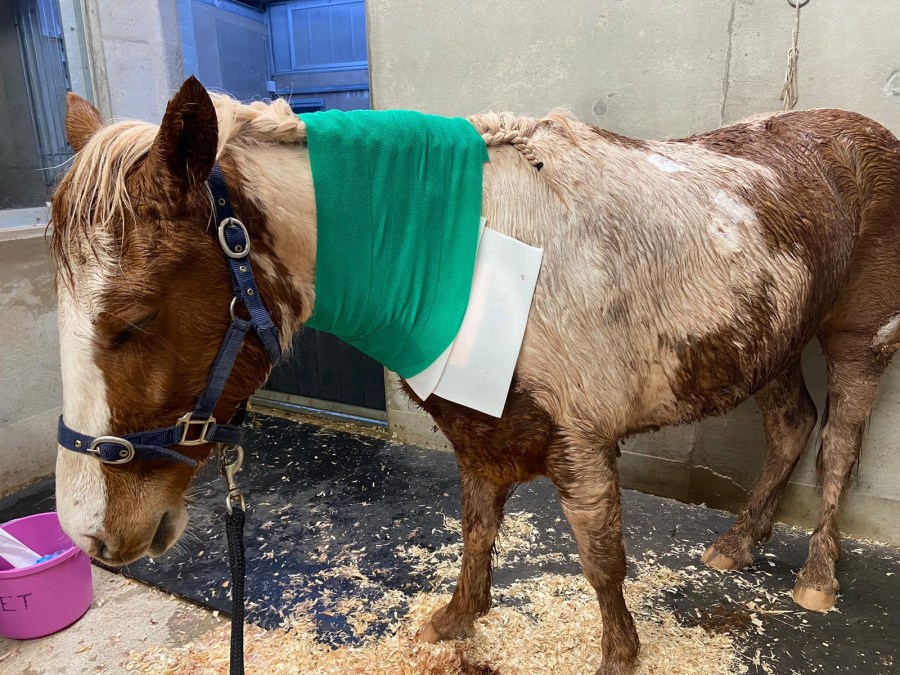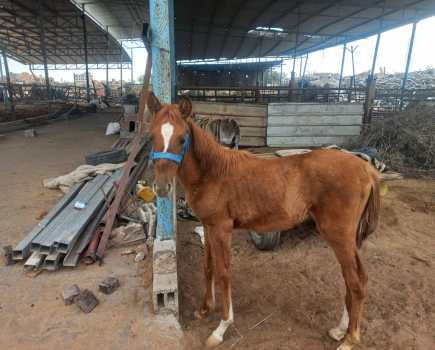Equine charities have united to rescue and rehabilitate a young pony who was severely injured in an attack by a stallion in a field in Devon.
Dakota, a two-year-old skewbald moorland gelding, was found with bleeding open bite wounds across his whole body because of the attack from his field companion.
In January, the Mare and Foal Sanctuary’s welfare team visited the field following reports of an equine in danger.
Together with the RSPCA, they removed Dakota from the field and took him for initial treatment and assessment at the sanctuary.
‘I knew it was bad’
 “When I saw Dakota, I wasn’t entirely certain of the extent of his injuries, but I knew it was bad,” said Leah Brock, field officer at the Mare and Foal Sanctuary, who was first on the scene.
“When I saw Dakota, I wasn’t entirely certain of the extent of his injuries, but I knew it was bad,” said Leah Brock, field officer at the Mare and Foal Sanctuary, who was first on the scene.
“He was extremely quiet, withdrawn and I knew we had to act fast because he didn’t appear to be coping well. He had a high temperature indicating a potential infection along with his visual injuries. I was really concerned.”
“Dakota was an absolute star patient, from assessing and loading him from his rescue site, travelling to the sanctuary and being treated by the vets. On his arrival, we stayed with him and began to clean him to prepare him for examination. He was such a kind, gentle boy who just tolerated anything and I felt he knew we were going to help him. We all fell in love with Dakota,” continued Leah.
New beginnings

Dakota has recovered well
As the sanctuary was at full capacity at the time, World Horse Welfare stepped in to offer Dakota a place at their Glenda Spooner Farm in Somerset.
Over the past nine months, Dakota has made a full recovery although he bears scars from the attack on his neck and body. He has found a new home and World Horse Welfare is confident he will continue to thrive and won’t be affected by the attack.
“Once Dakota’s injuries were healing well, the team at Glenda Spooner Farm managed his introduction to other horses extremely carefully to ensure interactions were calm and a positive experience for him,” said farm manager Claire Dickie.
“He has made a full recovery both physically and mentally, displaying normal and appropriate interactions with other horses, which is so important as a herd animal and critical to his mental and emotional health as well as his physical health.”









